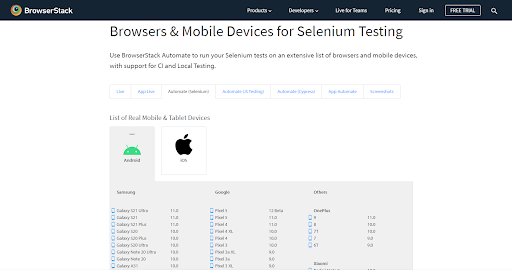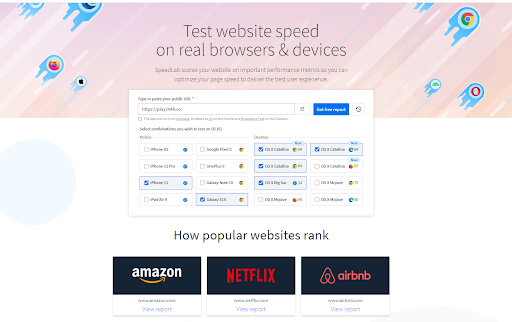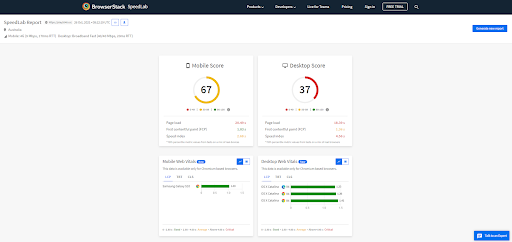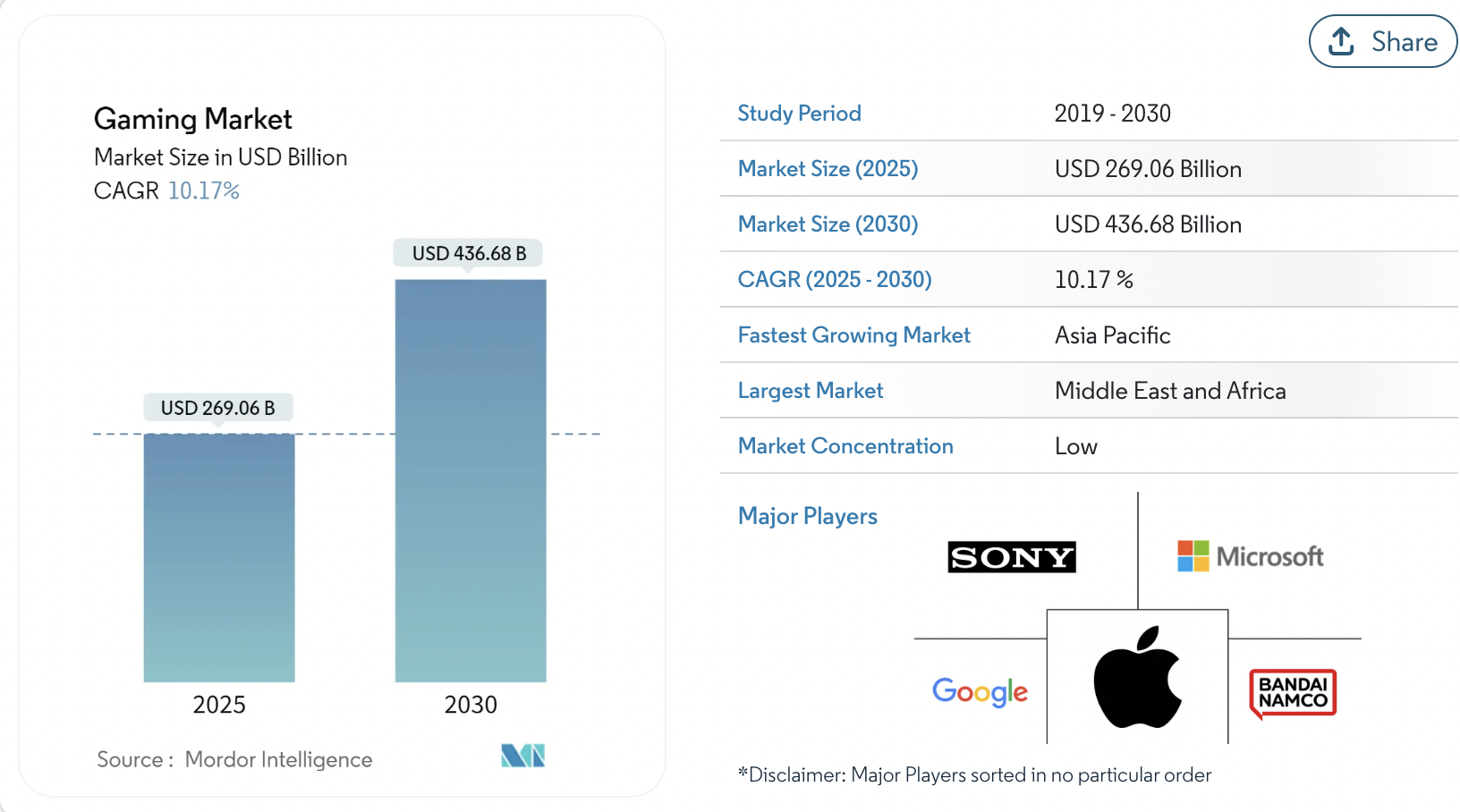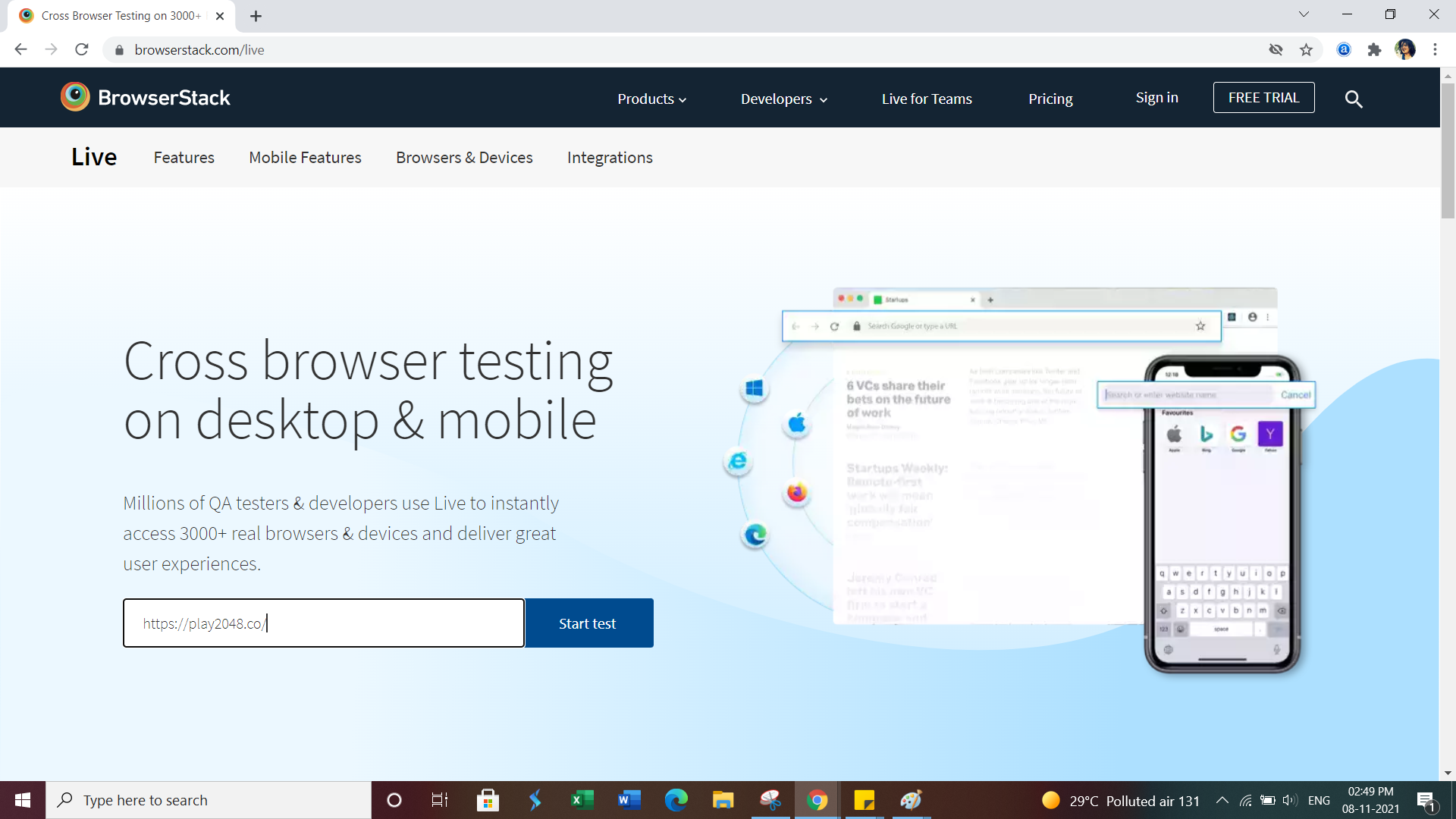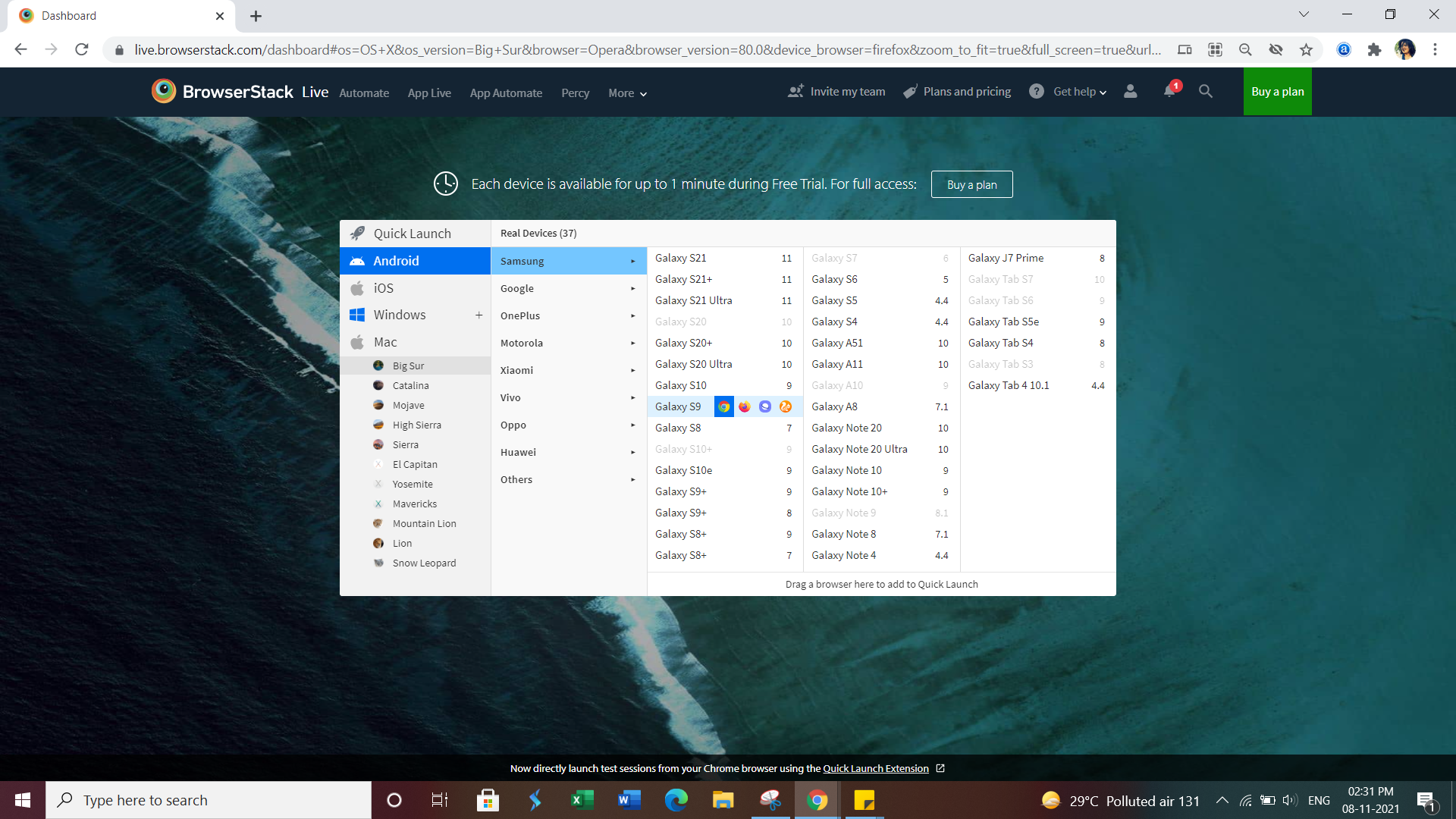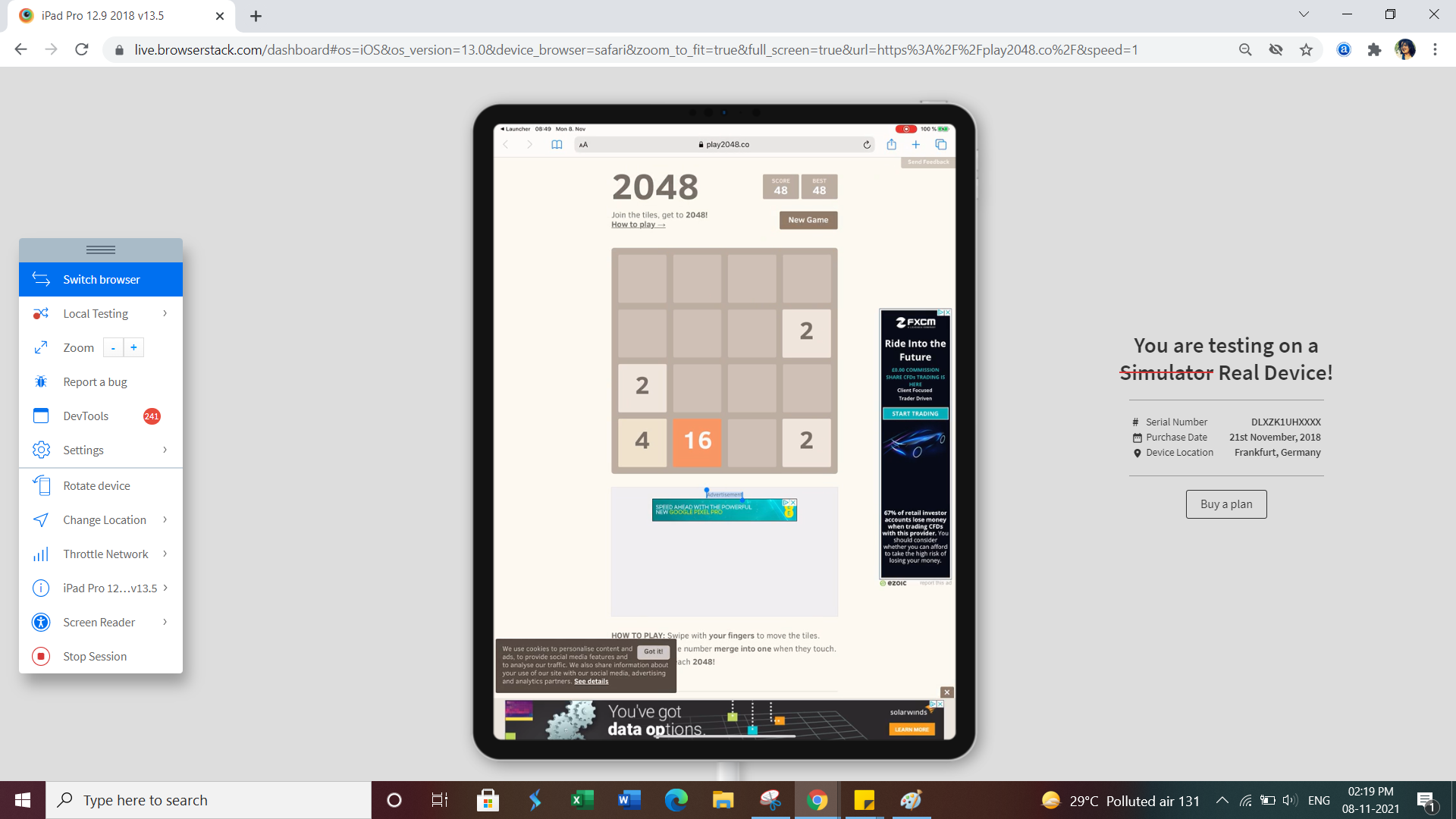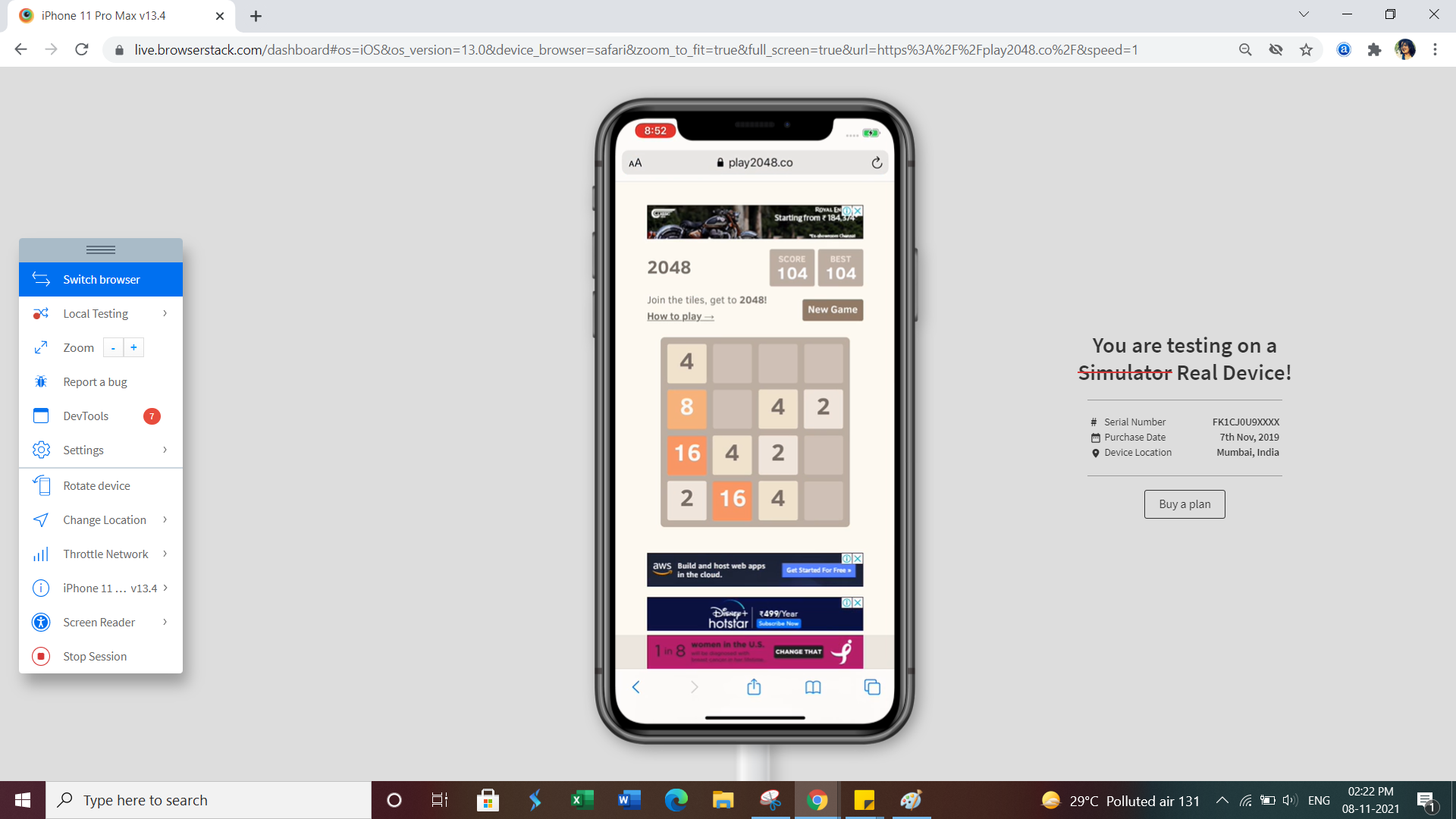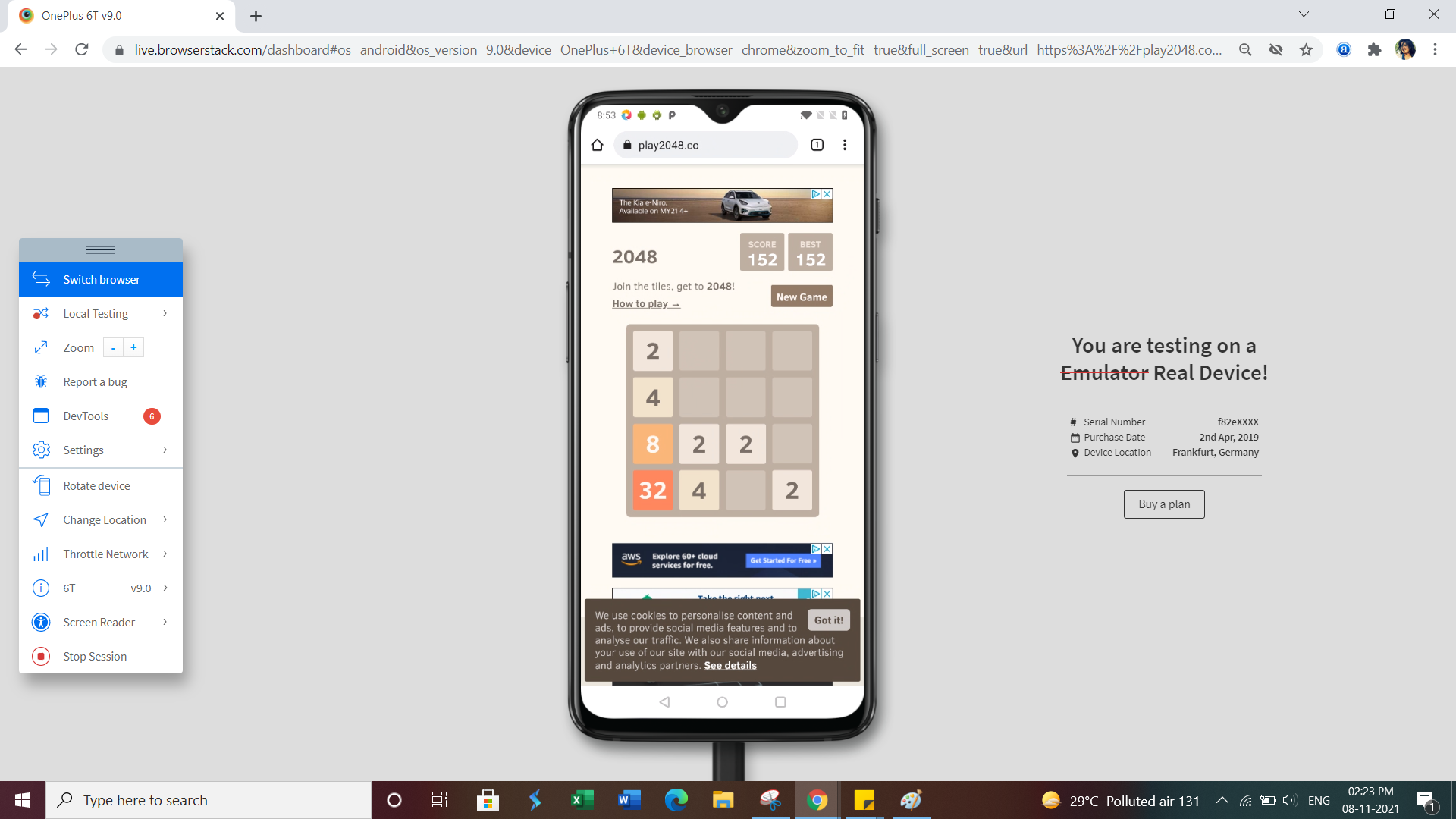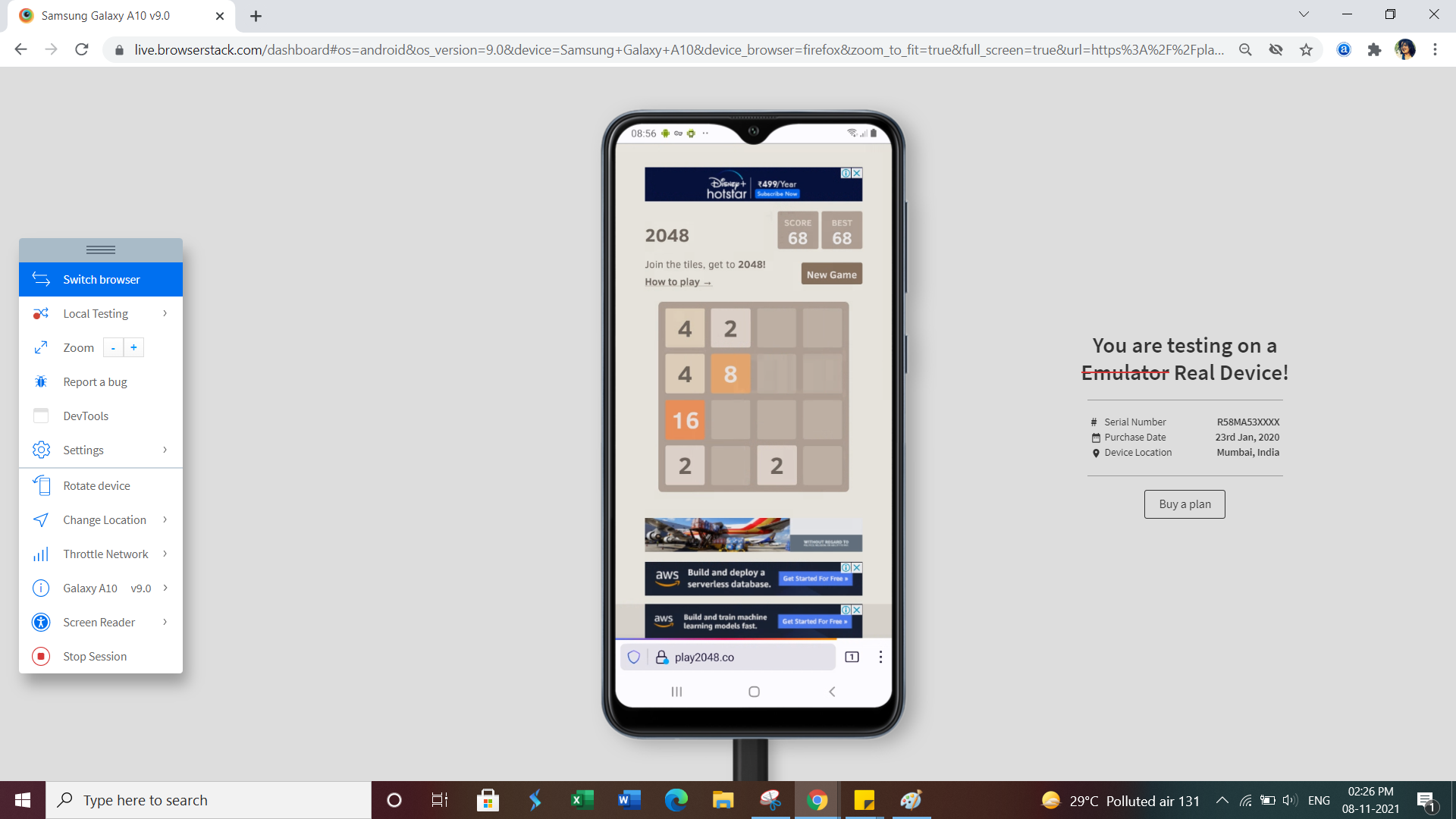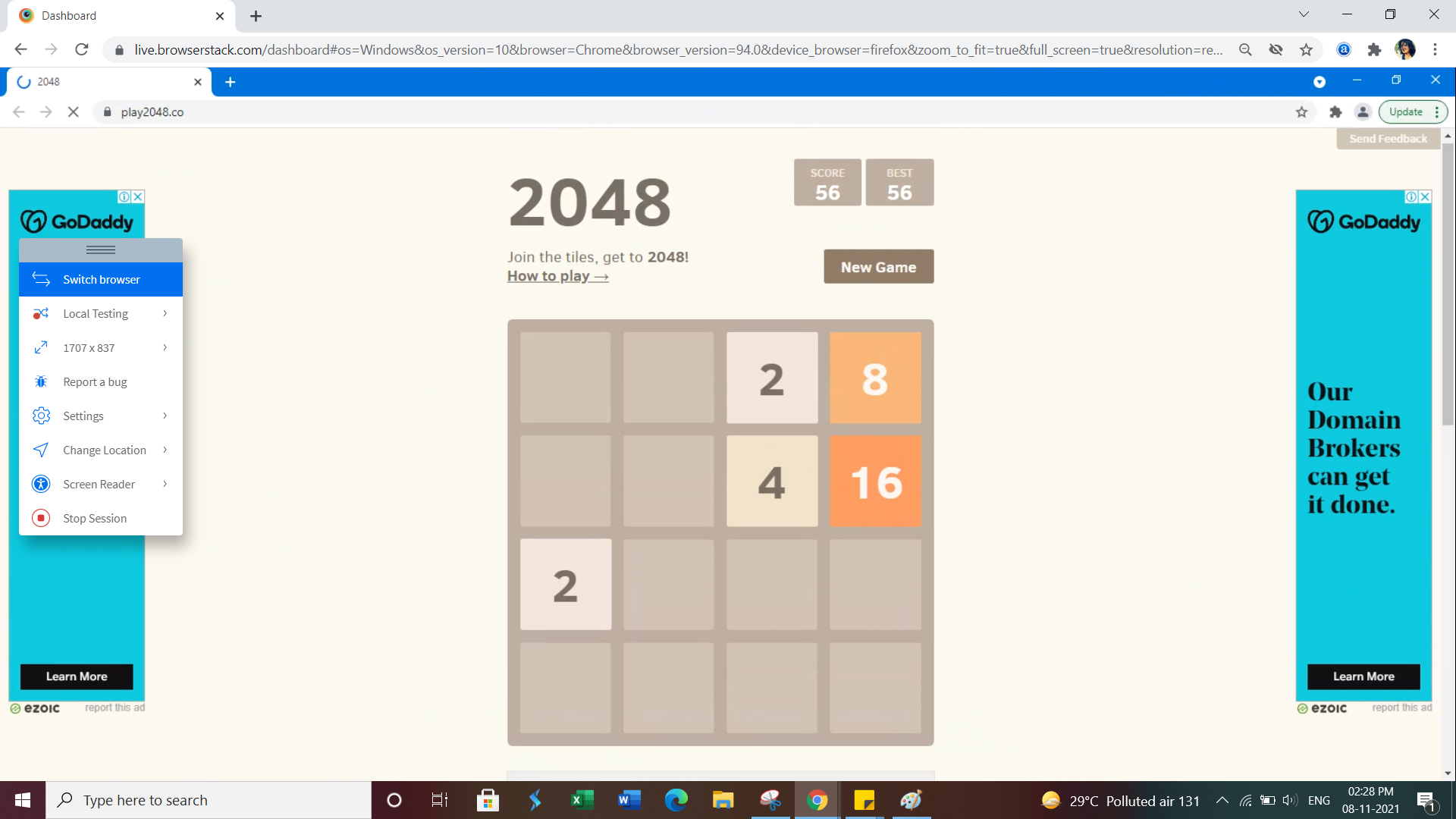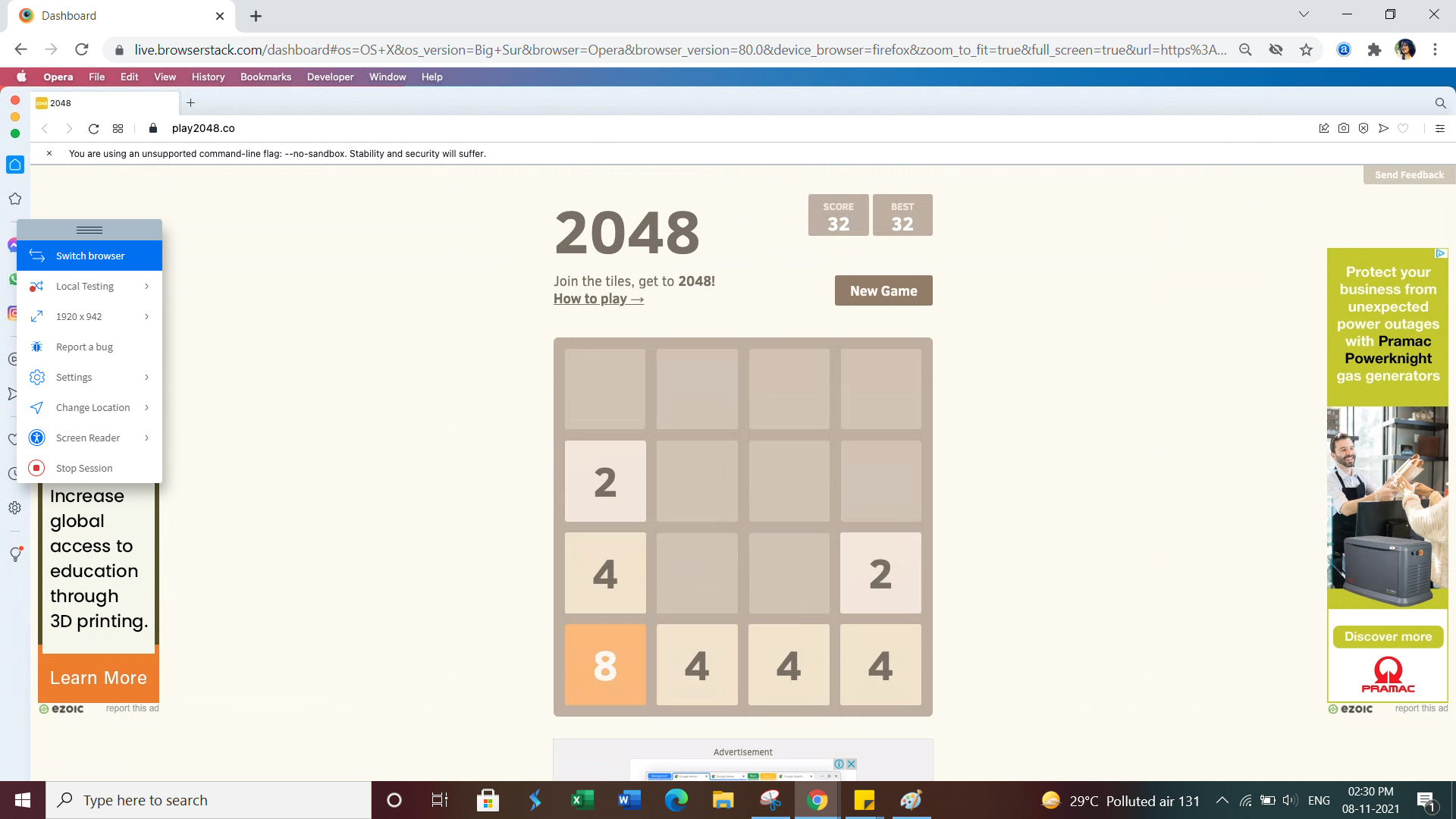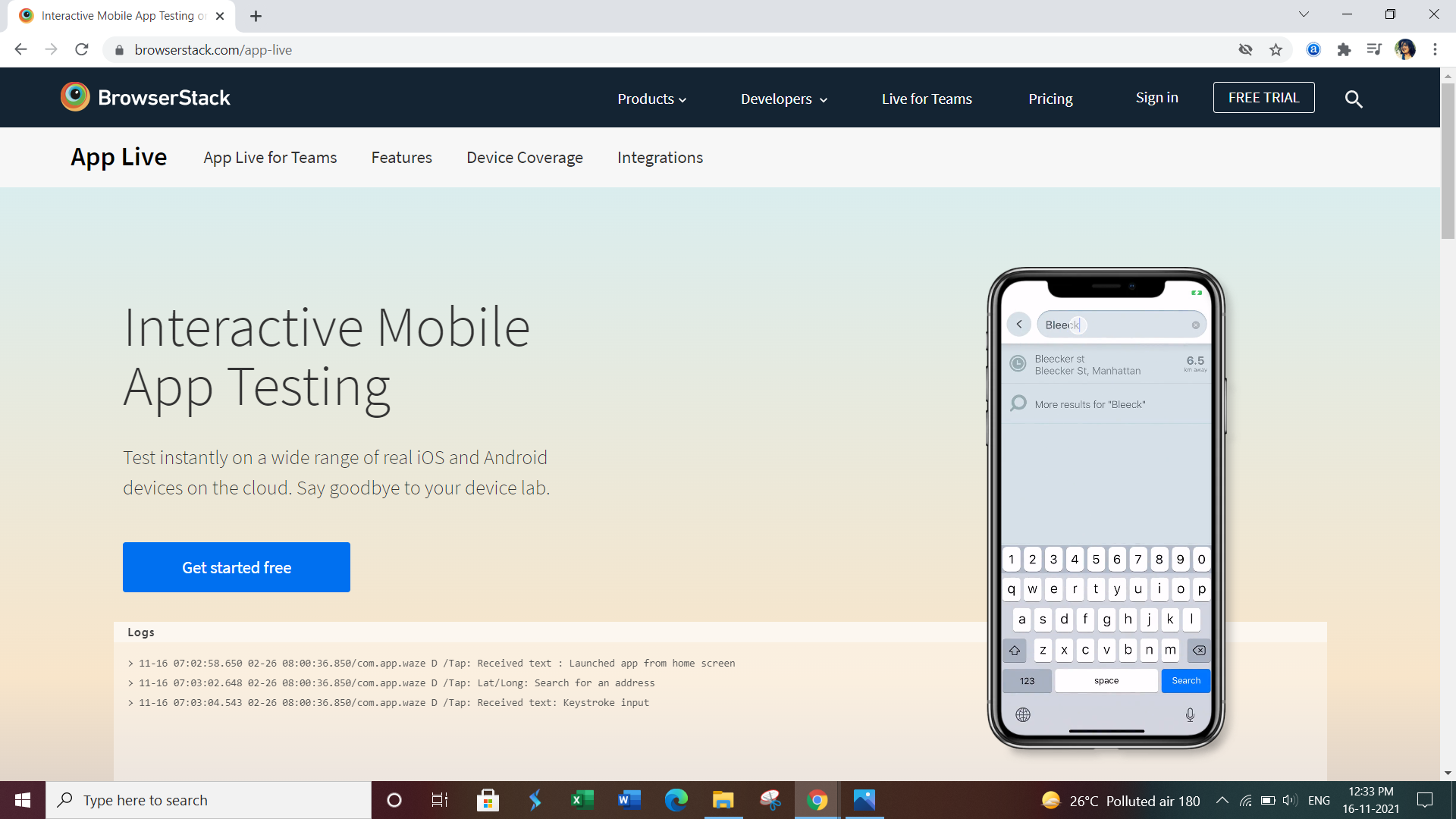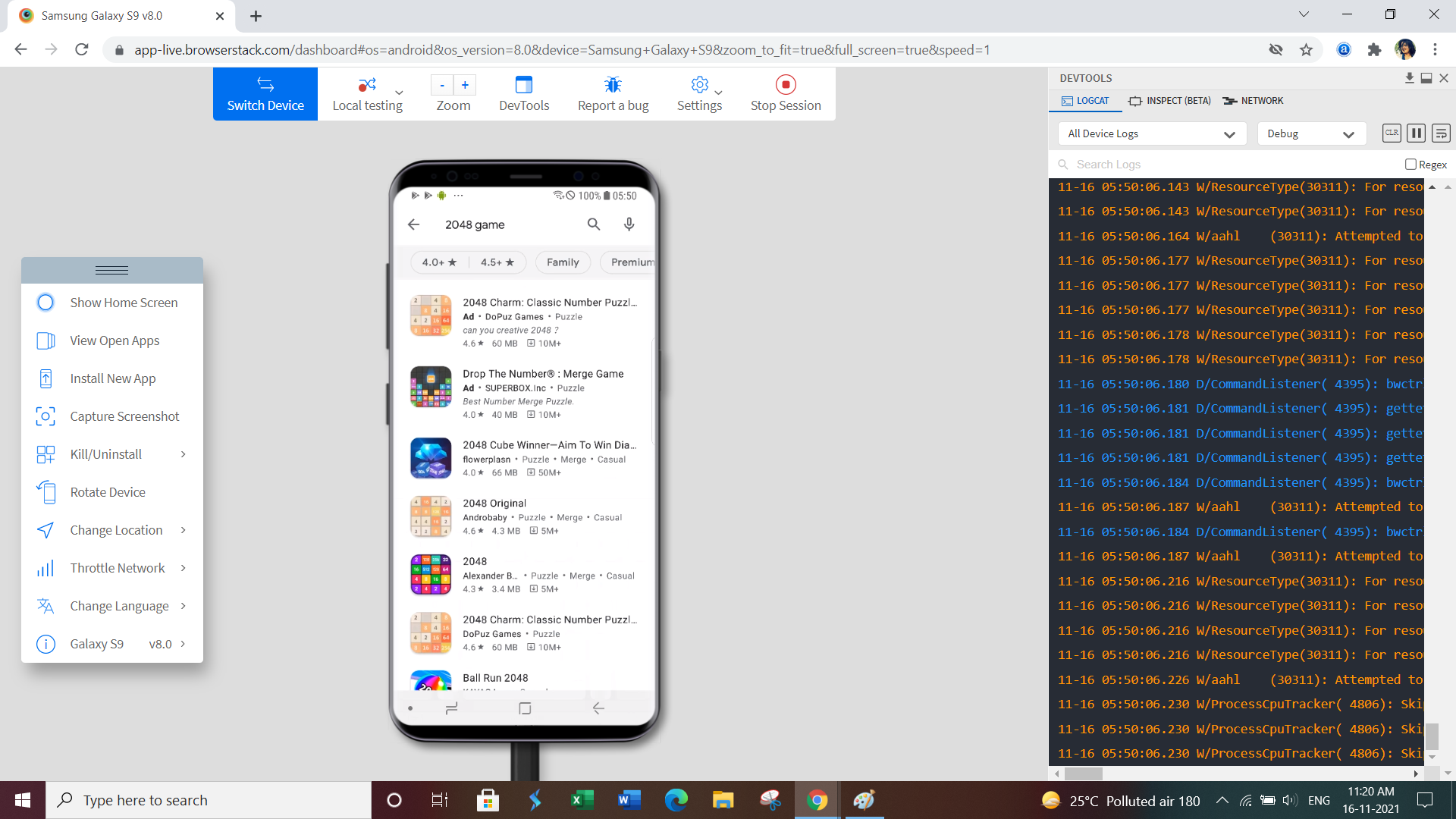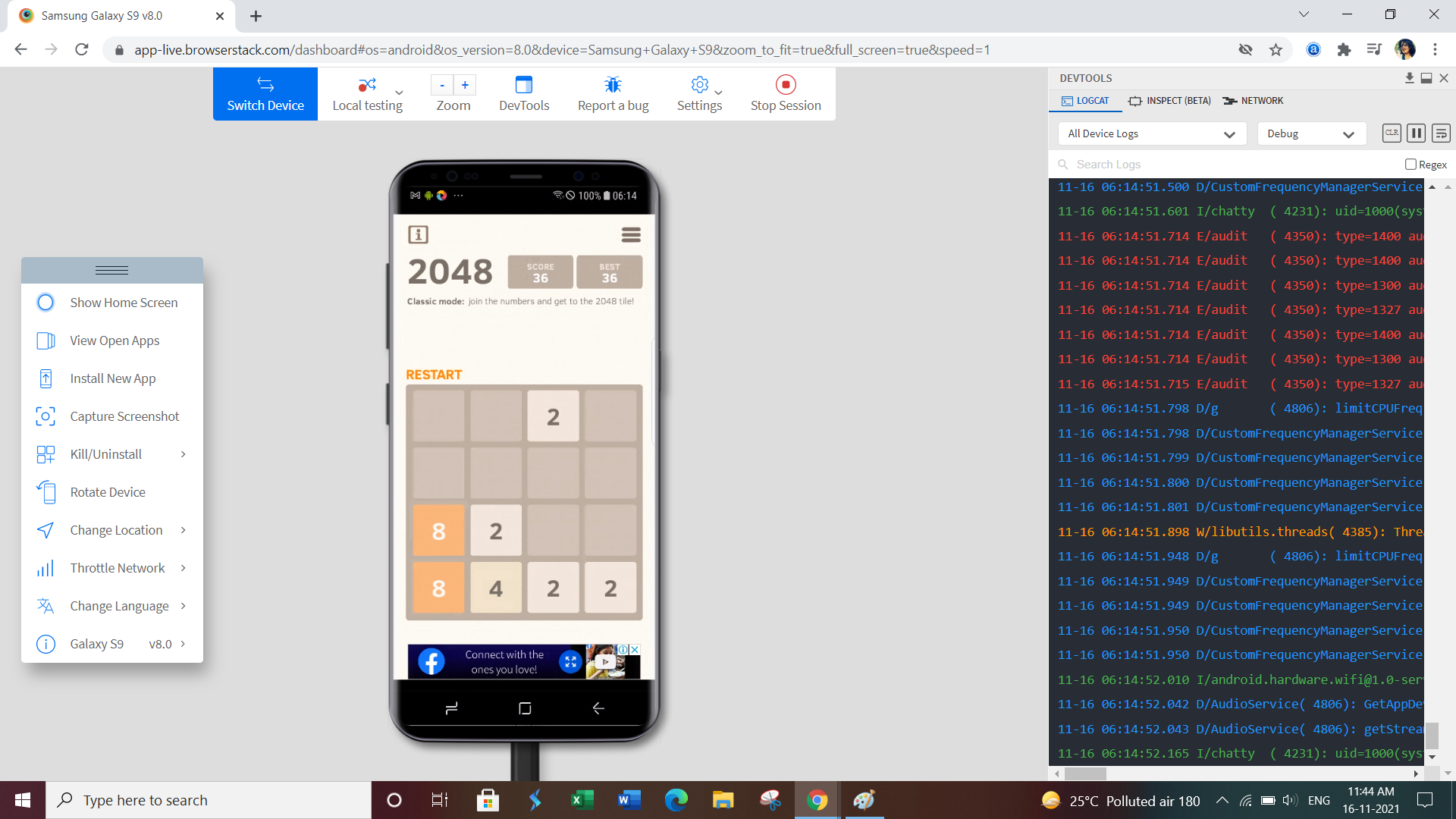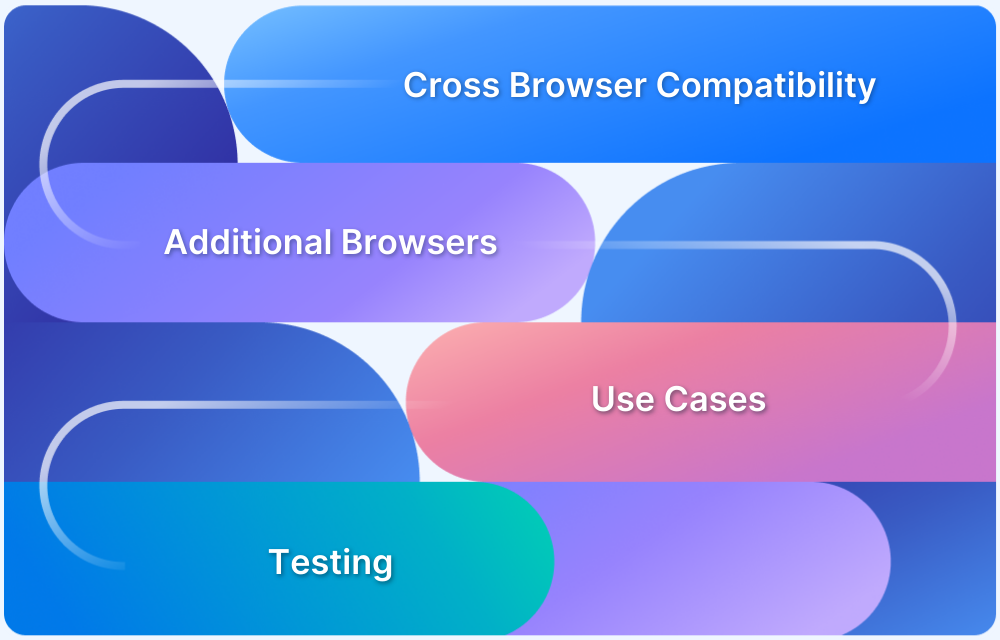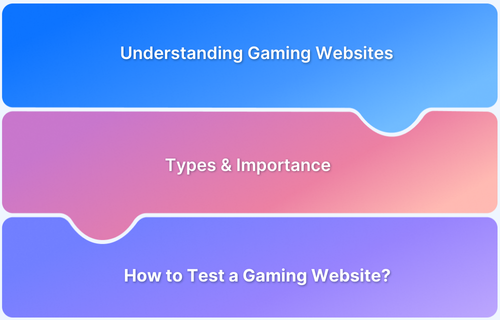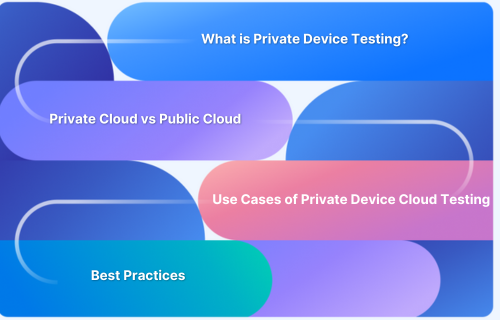Global Gaming market is massive, valued at USD 269.06 Billion in 2025 and is projected to reach USD 436.68 Billion by 2030, with a CAGR of 10.17%. Testing gaming software and ensuring its quality and multi-platform accessibility is key to boosting user engagement and competitive edge.
Overview
What to test on Gaming Apps
- User Login
- Payment Gateway
- Multiplayer and Single-player Modes
- Levels of Game
- Graphics and Sound Effects
Top Game Testing Tools
- BrowserStack
- Selenium
- Appium
This article will discuss how to test gaming apps extensively, covering what features to test, what types of testing to use, best practices, and more.
What to test on Gaming Apps
A gaming experience is all about the graphics, sound, and concept of the game meant to hook the gamer. User experience is the central entity in a gaming app, around which the development process takes place. Whether it is graphics, background music, function, or cross platform compatibility, every aspect works around to provide a complete gaming experience. In a typical gaming application, the following are the main features that have to be tested:
1. User Login
Games require players to login and maintain individual scoreboards, especially when playing in multiplayer mode. Hence, user login and user profile information pages should properly function.
2. Payment Gateway
In case the game has some paid features, it is important to have a proper payment gateway page setup that is secure and seamless. Hassle-free payment, along with the data security of the payment details are a must for setting up a functional payment gateway.
Other scenarios that should be tested include:
- payment cancellation
- payment acknowledgment and receipt generation
- payment method validations (whether using Credit/Debit Card or Internet Banking)
- currency calculation in case of dealing with multiple currencies
- integration with third-party payment gateway systems such as Razorpay
Since payment is one of the most sensitive functions of a gaming app, QAs must perform comprehensive testing of various scenarios for optimal performance.
3. Multiplayer and Single-player Modes
The game should be easy to switch from Single player to Multiplayer mode. Moreover, different players playing together from different devices should be able to connect seamlessly and enjoy a consistent user experience throughout.
4. Levels of Game
Ascending levels of a game with successful completion of each level is one of the primary functions required in a gaming app. Testing level selection and ascension to the next level are key scenarios a QA must check while testing a gaming app.
5. Graphics and Sound Effects
The graphics and sound effects make a gaming experience fulfilling and interesting. Having rich graphics and sound effects across all devices is a key concern that a QA must test, in order to prevent disruptive and inconsistent experiences. Hence, it is important that the gaming app has a responsive design that can adjust to different devices.
Types of Testing to perform on Gaming Apps
In Gaming Apps, UI/UX plays a major role in retaining enthusiasts. Hence different tests are essential for an enriched gaming experience.
Tests such as Functional Testing, Regression Testing, Responsive Testing, Performance Testing, UX testing, Cross Browser Compatibility Testing, and Website Speed Tests are essential in this regard.
1. Functional Testing
Functional Testing checks whether the gaming app is working as per the predetermined requirements. This means all functions such as Player Login, Game Algorithm, Scorecard, etc. are working as expected. The test cases are designed on the basis of different possible scenarios, which test various functions from the most basic to advanced ones.
Unit Tests, Sanity Tests, Smoke Tests, Regression Tests, Integration Tests, and Usability tests are some of the testing methods that are used as sub-categories of Functional Testing. While Functional Testing is primary and essential for quality assurance of gaming apps, it is highly time-consuming when performed manually. Hence, an efficient alternative is automation testing, where tools such as Appium can be used to test gaming apps, saving time and effort.
BrowserStack’s real device cloud enables QAs to run automated tests on a fleet of 3500+ real browsers and devices, providing wider coverage for testing. Testers can build test cases for gaming apps pertaining to real user conditions to avoid any disruptions causing an unpleasant user experience.
2. Cross Platform Compatibility Testing
Gaming apps should be accessed by players from different devices and platforms, especially in multiplayer mode, where multiple gamers simultaneously play the game. Despite accessing the app from different platforms, the users expect a seamless gaming experience; hence the gaming app has to be cross platform compatible.
BrowserStack’s real device cloud offers thousands of real mobile devices for testing gaming apps. QAs can run manual app testing on these devices, or they can run automated app testing via Appium. They can leverage a range of testing and debugging options to run tests, record and share results, and resolve errors, all in real-time.
Try Compatibility Testing for Free
3. Website Speed Testing
Bear in mind that there are certain online games that can be played in browsers. These games must load as fast as possible for a continuous and streamlined gaming experience, irrespective of the device-browser combination they are accessed from.
BrowserStack SpeedLab is ideal for checking website speed to ensure a quick load time on multiple real browser-device combinations. In the example below, we use BrowserStack SpeedLab to test the website of the game 2048 on different device-browser combinations.
4. Performance Testing
Checking the performance of gaming apps on various parameters such as stability, scalability, speed, and responsiveness altogether, under real user conditions, for varying levels of traffic and load is important to build a robust gaming app. BrowserStack’s real device cloud allows QAs to execute performance testing on real devices, browsers, and platforms to ensure optimal performance through rigorous testing.
Testing of gaming apps is necessary to offer an unmatched gaming experience. However, tests must be comprehensive and test scenarios have to be designed to offer maximum coverage.
This article covers general testing scenarios and testing types that should be performed by the QAs. It can be used as a foundation for extensive testing of gaming apps. Further detailed test scenarios can be created as per business requirements to ensure a high-quality gaming app offering a rich user experience.
5. Play Testing
In this game testing technique, testers play the game as real users and evaluate its functional workflow and non-functional aspects, such as entertainment, level design, etc., and the overall experience.
Play testing focuses on assessing the overall game. It verifies the game’s structure, storylines, challenges, etc., to check the engagement quotient.
6. Soak Testing
In soak testing, the gaming app is run for a long period of time in different modes of operation so as to detect any memory leaks, performance degradation or crashes.
7. Compatibility testing
Compatibility testing ensures that your game runs seamlessly across multiple devices, OS versions, and hardware configurations.
8. Recovery testing
In recovery testing, testers check how well a game recovers from crashes, system failures or similar undesirable scenarios.
9. Regression testing
Regression testing sees to it that any new updates or bug fixes do not bring in new issues.
Difference between Game testing and Software testing
Both game testing and software testing are performed to ensure quality. While game testing focuses on user experience, graphics, and performance, software testing stresses on functionality, security, and efficiency.
| Aspect | Game Testing | Software Testing |
|---|---|---|
| Goal | Performed to ensure a seamless, immersive, and error-free gaming experience. | Performed to validate functionality, security, and performance of software apps. |
| Focus Areas | U/UX, Gameplay mechanics, graphics, audio, multiplayer, frame rates, etc. | Functional workflow, security, data, system performance, etc. |
| Types of Testing | Functional testing, play testing, soak testing, cross-platform compatibility testing, regression testing, etc. | Functionality testing, performance testing, usability testing, security testing, etc. |
| Complexity | Fast evolving with real-time interactions, physics simulations, and unpredictable user behavior. | It is more defined with structured workflows and predictable user behavior. |
| Performance Metrics | Frame rate (FPS), latency, rendering speed, memory usage, crash rates etc. | Response time, load capacity, scalability, error rates, etc. |
Read More: How to Test a Gaming Website?
Why is it important to test Gaming Apps on multiple devices?
The gaming market is growing exponentially with a massive target audience. To delight the larger user base, it is important that gaming apps are versatile and can offer the same gaming experience on multiple devices.
Source: Mordor Intelligence
A seamless gaming experience would mean that despite the different browser-device-platform combinations, the game offers the same experience throughout. This can only be achieved through comprehensive cross-platform testing using real devices.
BrowserStack’s real device cloud makes cross platform testing easy and detailed with its wide testing range, covering thousands of unique browser-device combinations for high-quality cross platform compatible gaming apps.
How BrowserStack Private Device Cloud Supports Game Testing?
Gaming apps demand seamless performance across devices, operating systems, and network conditions. Any lag, crash, or rendering issue can directly affect player experience and brand reputation. To address these challenges, game testing must go beyond simulators and take place on real devices where gameplay conditions can be replicated accurately.
BrowserStack’s Private Device Cloud provides game testing companies with secure, dedicated devices for running comprehensive gaming app testing. By using isolated devices, QA teams can validate graphics performance, frame rates, network responsiveness, and user interactions without risking data leaks or device conflicts.
Here are a few ways BrowserStack supports game testing:
- App Persistence Testing: Check saved progress, preferences, and in-game states across multiple sessions.
- SIM-Based Testing: Validate in-game purchases, multiplayer connections, and region-specific behavior under real SIM networks.
- Custom MDM Support: Securely manage test devices and enforce policies for pre-release game builds.
- Offline Mode Testing: Ensure games function smoothly when users play without internet access.
- Performance Monitoring: Capture logs, metrics, and crash reports to optimize gameplay and stability.
- Automation Support: Run large-scale regression tests using Appium, Espresso, or XCUITest for faster release cycles.
- Flexible Cleanup Controls: Retain or reset in-game data between sessions to accelerate iterative testing.
- Exclusive Devices: Gain access to catalog, non-catalog, or custom devices to replicate specific target markets.
Testing a Real Gaming App
To showcase how testing works, let us test a real Gaming App, 2048 on URL https://play2048.co/ using BrowserStack Live.
- Enter the website URL of the 2048 Game under test upon opening BrowserStack Live.
- Select the Device-Browser Combination for testing.
Here are some tests conducted on different Browser-Device-Platform Combinations for the Game 2048:
1. iPad Pro 12.9 2018 v13.5 on Safari
2. iPhone 11 Pro Max v13.4 on Safari
3. OnePlus 6T on Safari
4. Samsung Galaxy A10 v9.0 on Firefox
5. Windows10 on Google Chrome
6. MacOS Big Sur on Opera
Test Result:
On all of the devices, the game worked consistently providing the same gaming experience. Hence, it can be concluded that the game 2048 is cross-browser compatible.
You can run these tests on Private Devices with BrowserStack so the game delivers consistent performance, secure sessions, and a seamless user experience across every platform.
Testing a Real Gaming Mobile App
To showcase how to test mobile gaming apps on real mobile devices, let us test the same game as above – 2048 on Samsung Galaxy S9 v8.0 by downloading the game app from Google Play Store and testing it using BrowserStack App Live. In this case, the actual app is being testing as opposed to the website.
Downloading the 2048 app on the Real Cloud Device: Samsung Galaxy S9 v8.0 from the Google Playstore.
Testing the 2048 Game App on Samsung Galaxy S9 v8.0
Test Result:
The 2048 game application worked exactly the same and provided a consistent gaming experience as it did with the web app on various devices. Hence, it can be concluded that the game 2048 is cross-platform compatible.
You can run these tests on Private Devices with BrowserStack to deliver secure, seamless, and consistent gaming app experiences across Android and iOS.
Challenges faced by Game testers and their Solutions
Game testers also face a few challenges when it comes to testing game applications. Here are some common challenges:
- Sophisticated Gameplay Scenarios: The unpredictability of player actions, AI behaviors, and storylines make it difficult to test every possibility. Using automation for repetitive tasks and AI-based testing tools can help overcome this challenge to a large extent.
- Cross-Platform Compatibility: Ensuring that the game apps run seamlessly across various devices, operating systems, browsers, and screen resolutions can be challenging. However, leveraging cloud-based testing platforms like BrowserStack can help you maximize coverage. With BrowserStack, you can access 3500+ device-OS-browser combinations through a real-device cloud.
- Performance Issues: Ensuring that the games maintain a stable frame rate and load smoothly without crashes is important. For this, you can conduct stress testing, soak testing and optimize game assets for seamless performance.
- Multiplayer & Network Testing: Verifying smooth multiplayer gameplay, managing latency and spotting server issues can be quite challenging. Run network simulation testing for various bandwidths, latency conditions and concurrent users to overcome this challenge.
- Regression Issues: Regular and frequent updates can introduce new bugs or affect the existing functionality. Run regression testing with automated test suites to detect issues earlier.
Read More: Top 20 Cross-Platform Testing Tools
Best Practices while Testing a Gaming App
Here are some of the best practices to be followed while testing a Gaming App:
- Test Cross Browser Functionality: UI/UX plays a major role in the gaming experience and hence it is essential that the gaming experience remains unaltered as the user switches between browsers. Hence cross browser compatibility is mandatory and should be a priority while testing.
- Test on Real Devices: QAs must use real devices instead of emulators and simulators to understand how an app would perform in the world. This would allow them to report issues accordingly for a smooth gaming experience. While testing on real devices might seem costly, using BrowserStack’s real device cloud, it is possible to test on thousands of device-browser combinations in a cost-effective way. Sign Up for Free.
- Take Screenshots or record video of tests: Screenshots and Video Recordings help with debugging when a test case fails or displays unexpected behavior. They help identify exactly where in the test script anomalies appeared and caused the test to fail.BrowserStcak’s comprehensive debugging tools allow QAs to take screenshots and record videos of tests for easy bug identification and resolution.
Conclusion
Gaming app testing is critical to delivering smooth gameplay, consistent performance, and a reliable user experience across platforms. Beyond core functionality, factors like device compatibility, network stability, and user data persistence must also be validated to ensure players remain engaged.
BrowserStack’s Private Device Cloud empowers game testing companies to achieve this with secure, real-device access, customizable setups, and support for automation at scale. By testing on real environments before launch, teams can confidently release gaming apps that perform seamlessly across browsers, devices, and operating systems.


